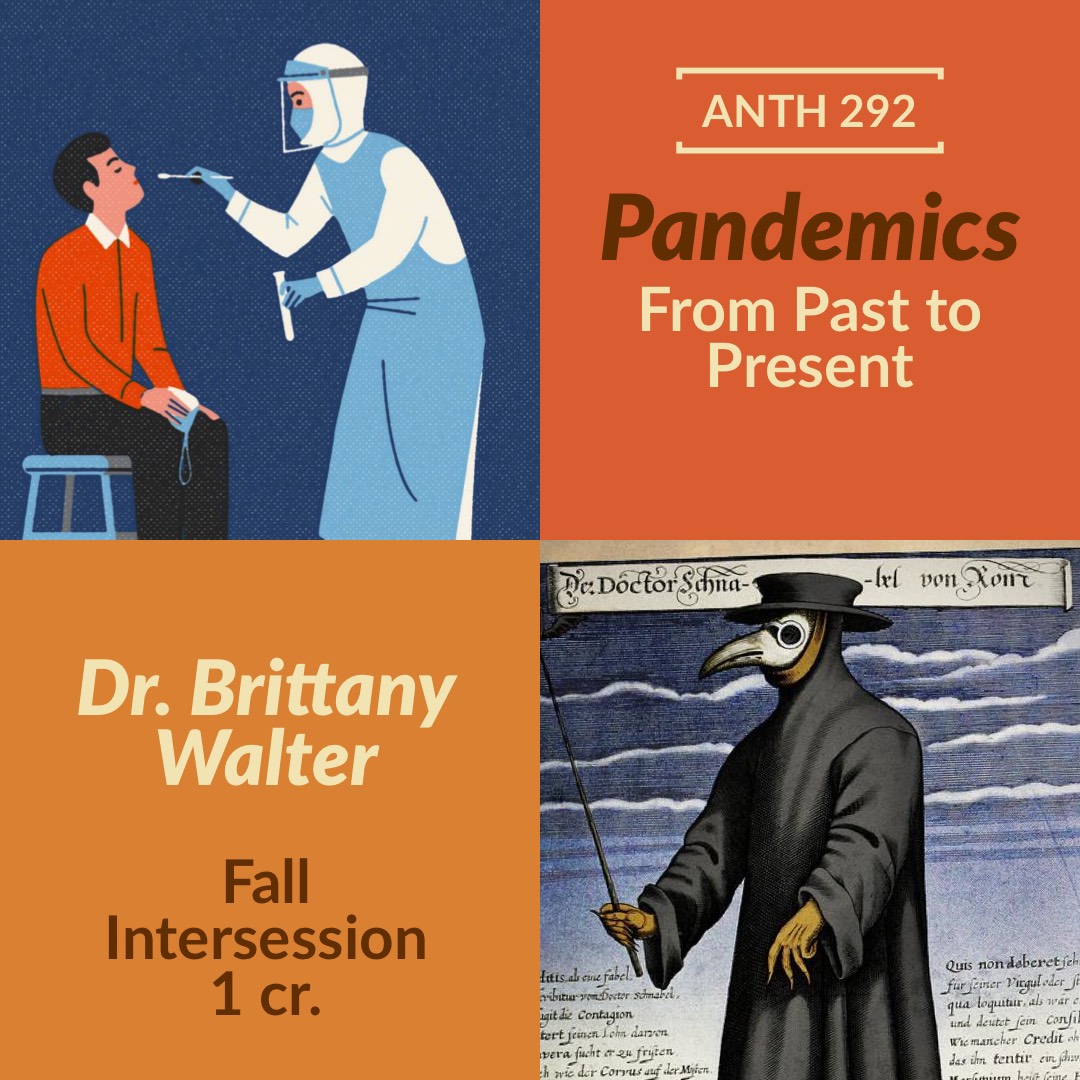
Currently, the world is experiencing a global pandemic that, in a few short months, has resulted in hundreds of thousands of deaths worldwide. The COVID-19 pandemic has made people hyperaware of the death and destruction that infectious diseases can leave behind. Humans, however, have been suffering from and dealing with infectious disease outbreaks for thousands of years. In this timely course, we will explore, through an anthropological lens, some of the most well-known and important pandemics in human history, from early malaria outbreaks, to the medieval Black Death and the Columbian Exchange (to name a few), and concluding with the current COVID-19 pandemic.
This three-week course will be delivered via Canvas using daily modules. Modules will be comprised of different forms of media, including recorded lectures, podcasts, scholarly research articles, news articles, videos, and blog posts.
Students who complete this three-week course can expect to:
Understand the contributions that anthropology makes to studies of disease in past and present populations
Gain a better understanding of how pandemics, and infectious disease in general, have shaped public health policy through time
Discuss how diseases can disproportionately affect certain groups and create deadly health inequities
Explain how skeletal remains can be informative about health and infectious diseases that occurred in past populations
Effectively compare the COVID-19 pandemic to historic and modern infectious disease outbreaks
Critically synthesize ideas through various forms of media and perspectives